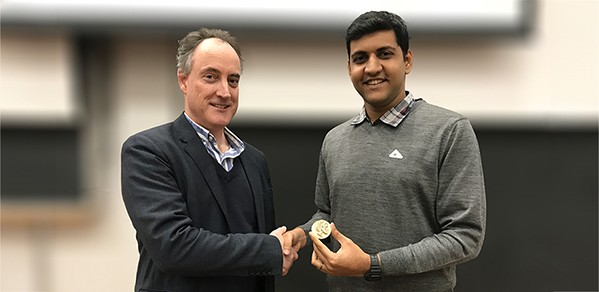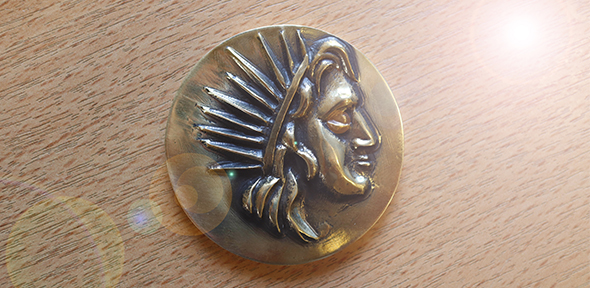
Parth Deshpande, a PhD student in the Centre for Sustainable Road Freight, has been announced the winner of the Department’s 2023 Helios Prize – awarded for research on sustainable energy and/or energy efficiency.
Electric road freight is a complex problem to solve, with a lot more still to be done, and winning the Helios Prize gives us even more motivation to continue working on it.
Parth Deshpande
The Helios Prize was launched in 2019 and is made possible thanks to a generous donation from Cambridge alumnus John Firth. John approached the Department specifically and asked that the prize be named after the Greek sun god Helios, because the world’s renewable energy is fundamentally driven by solar energy.
Parth’s winning co-authored research paper is titled A breakeven cost analysis framework for electric road systems and is published in the journal Transportation Research Part D: Transport and Environment.
With road freight emissions forming a significant part of a country's total emissions, one of the key steps for achieving net zero is to decarbonise road freight. In this paper, Parth and his co-authors investigate the feasibility and impact of electrifying HGVs using electric road systems (ERS), thus reducing the need for large (and heavy) batteries.
A cost breakeven analysis was formulated to identify the locations where an ERS is economically viable. The road networks in England, France, India and South Africa were analysed in terms of their financial breakeven period, for which the ERS would be economically self-supporting. The differences in these countries were observed in terms of their road freight distribution and price sensitivity.
This analysis revealed that up to 47% of the total road freight in England, 72% in France, 38% in India and 57% in South Africa could be electrified using ERS with a 15-year breakeven period.
It was established that the use of ERS reduces “windmill-to-wheel” emissions by approximately 10% compared to battery electric vehicles, and by varying amounts compared with diesel vehicles, depending on the grid carbon factor.
“I am glad that our research on electric road freight has been awarded the Helios Prize and I am thankful to my co-authors on this paper – Professor David Cebon, Dr Christopher de Saxe, Dr Daniel Ainalis and Professor John Miles – for their support and ideas,” said Parth. “Electric road freight is a complex problem to solve, with a lot more still to be done, and winning this prize gives us even more motivation to continue working on it.”
He added: “I would encourage researchers in this field to come forward and showcase their ideas through the various platforms available at Cambridge, including applying for this award, the prestigious Helios Prize.”
Parth was presented with prize money, along with a brass medal depicting the face of Helios. The medal was crafted by Alistair Ross, former Manager of Design and Technical Services at the Department of Engineering. He machined it on-site using a 3D pantograph and drew inspiration for the design from a Helios coin loaned to him by the Fitzwilliam Museum, believed to date from the 2nd to 1st century BC.


